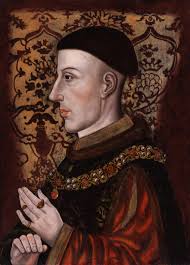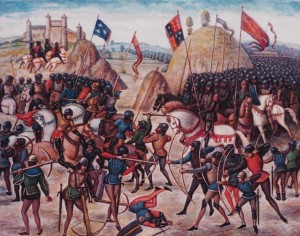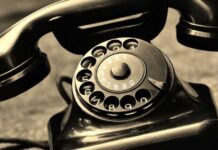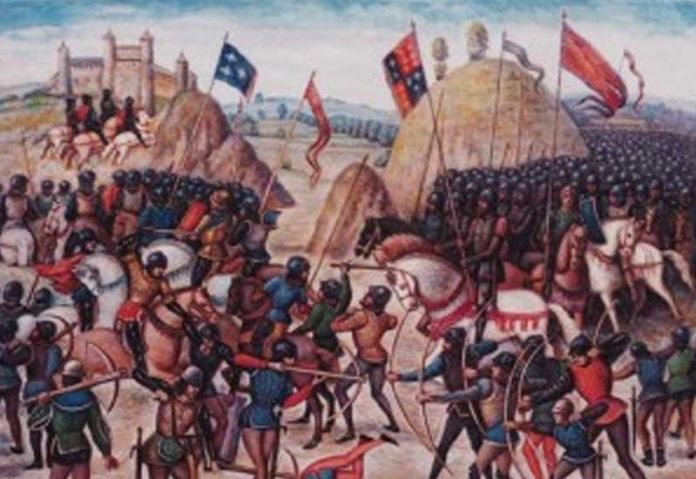October 2015 marked the 600th anniversary of one of the most famous victories ever won by an English army. On October 25th 1415 a small, exhausted and demoralised English force faced a vastly superior French army at Agincourt, a village near Calais. Despite being hopelessly outnumbered, the English won a crushing victory, killing or capturing around 10,000 men whilst losing only 200. Rarely in History has there been such an overwhelming victory for the underdog in battle.
 History has been kind to King Henry V who led the English army in person. He was seen as a brilliant General, a hero and one of the most famous of all our monarchs. Much of this is down to William Shakespeare. Henry V is one of his best plays, including two of the most famous patriotic speeches ever written: “Once more unto the breach..” and the “Band of Brothers” speech just before the battle itself. Of course Henry never made either speech, they are both products of Shakespeare’s genius. In truth, it seems Henry only said the 15th Century equivalent of “Let’s go” before the battle began!
History has been kind to King Henry V who led the English army in person. He was seen as a brilliant General, a hero and one of the most famous of all our monarchs. Much of this is down to William Shakespeare. Henry V is one of his best plays, including two of the most famous patriotic speeches ever written: “Once more unto the breach..” and the “Band of Brothers” speech just before the battle itself. Of course Henry never made either speech, they are both products of Shakespeare’s genius. In truth, it seems Henry only said the 15th Century equivalent of “Let’s go” before the battle began!
Shakespeare wrote his play in 1599 when English patriotism had been raised by the victory over the Spanish Armada. Shakespeare both reflected and helped create the new patriotism by portraying Henry, not just as an ancestor of Elizabeth I, but as her forerunner in defeating an apparently all-powerful enemy. The power of the play to stir patriotic feelings has not diminished. Winston Churchill asked Laurence Olivier to make a film version in 1944 just before D-Day. The intention was clear. Once again, as in 1415, the British were coming to liberate Europe.
The truth is less glamorous and less heroic. Henry, a new young King (he was 29 in 1415) only recently crowned, deliberately started an unnecessary war with France to pursue a weak claim to the French throne. Far from being insulted by the French by being offered some tennis balls as a present as Shakespeare claims, Charles VI of France offered incredibly generous terms to try to avoid war: land, a vast amount of gold and the hand of his daughter in marriage. Henry took this as a sign of weakness and in the summer of 1415 invaded Northern France.
The invasion was in fact a disaster. The English took much too long to capture the port of Harfleur, the weather was terrible, disease spread and morale fell. Rather than staying at Harfleur, Henry decided to march North. This too was a mistake as the tiny English army struggled to find any bridges to cross the River Somme. All the French had to do was watch as the English army disintegrated in front of them, trapped miles from safety.
 The French bungled. It was beneath the dignity of the French nobility to simply watch the English starve. They must be beaten in a real battle! It was the French who blocked the English and forced a despairing Henry to fight. A combination of the French being forced to charge down a narrow valley (which meant they had no way to outflank the outnumbered English), thick mud and the famous English and Welsh longbowmen destroyed the French charges. The English, without the extra weight of armour, could then move amongst the fallen Frenchmen, killing the common soldiers and taking the nobles alive to be ransomed. During the battle several hundred unarmed French prisoners of war were murdered on Henry’s personal orders. Today that would be considered a war crime, and even then, Henry’s ruthlessness shocked Europe.
The French bungled. It was beneath the dignity of the French nobility to simply watch the English starve. They must be beaten in a real battle! It was the French who blocked the English and forced a despairing Henry to fight. A combination of the French being forced to charge down a narrow valley (which meant they had no way to outflank the outnumbered English), thick mud and the famous English and Welsh longbowmen destroyed the French charges. The English, without the extra weight of armour, could then move amongst the fallen Frenchmen, killing the common soldiers and taking the nobles alive to be ransomed. During the battle several hundred unarmed French prisoners of war were murdered on Henry’s personal orders. Today that would be considered a war crime, and even then, Henry’s ruthlessness shocked Europe.
Henry, a sincere Catholic, believed God had blessed his army because he was in the right. It reinforced his determination to become the King of France. He did manage to capture much of Northern France and marry King Charles’ daughter, but it is often forgotten that he could have achieved that without fighting at all had he accepted Charles’ original offer.
Henry died in France in 1422, still fighting. Within 30 years everything he gained as a result of Agincourt was lost again.
With the benefit of hindsight we can see that Henry’s war was both unnecessary and ended up harming England as much as France. The whole campaign was flawed from the start and it was French overconfidence rather than any skill on Henry’s part that won him such a decisive victory.
It makes no difference. Henry will always be a hero and symbol of English patriotism and greatness. I cannot compete with Shakespeare.










